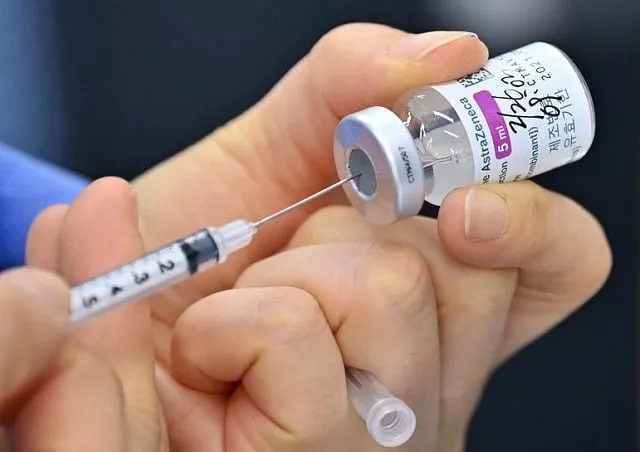Vaccine protects Covid-19 survivors against variants
Pfizer/BioNTech, mRNA vaccine protects not only against the original virus strain but also against worrisome variants
The following is a roundup of some of the latest scientific studies on the novel coronavirus and efforts to find treatments and vaccines for Covid-19, the illness caused by the virus.
Vaccine protects Covid-19 survivors against variants
In Covid-19 survivors, the Pfizer/BioNTech, mRNA vaccine protects not only against the original virus strain but also against worrisome variants, two studies show. UK researchers analyzed immune responses after a single dose of the vaccine in 51 people, including 25 people previously infected with an early version of the novel coronavirus.
Survivors showed enhanced antibody responses against the newer, more infectious variants first seen in the UK and South Africa, whereas people who had not previously been infected did not produce antibodies that could neutralize the variants, according to a report on Friday in Science. Separately, US researchers studied 30 people after two doses of the vaccine.
Covid-19 may cause heart failure in some patients
Immune responses were 3.4 times better at neutralizing the coronavirus in the 10 Covid-19 survivors than in the 20 who were not previously infected, they reported on medRxiv on Thursday ahead of peer review.
The difference was even greater when looking at neutralization of new variants from the UK, South Africa and Brazil, said coauthor Fikadu Tafesse of Oregon Health & Science University.
"For example, the South African variant, which is the best at evading neutralizing antibodies, was 6.5 times better blocked," or neutralized, in blood samples from people who were vaccinated after infection, he said. "Our findings give people another reason to go out and get vaccinated even if they have already had Covid-19."
Covid-19 spike protein damages blood vessels
The "spike" proteins that the coronavirus uses to help it break into cells inflict other damage as well, according to a new study that shines a spotlight on the many ways Covid-19 attacks organs other than the lungs.
The spike proteins themselves cause direct damage to the cells that line the blood vessels, scientists found in test-tube experiments using an engineered version of the spike and artery-lining cells obtained from mice.
After attaching itself to the ACE2 protein on healthy cells, the spike disrupts signaling from ACE2 to the mitochondria - the cell's energy-generating structures - causing the mitochondria to become damaged, researchers reported on Friday in Circulation Research.
Covid-19 is really a disease of the blood vessels, coauthor Uri Manor of the Salk Institute for Biological Studies in La Jolla, California said in a statement. The new findings could help explain the blood clots associated with Covid-19. They could also explain "why some people have strokes, and why some people have issues in other parts of the body," Manor said.
South African virus variant may resist antibody drugs
"The commonality between them is that they all have vascular underpinnings."
Cancer screenings in US plummeted during pandemic
Nearly 10 million screenings for three common cancers were missed in the US because of the Covid-19 pandemic, a new study suggests.
Researchers who compared monthly spring and summer screening rates in 2020 to rates in 2018 and 2019 found a 90.8% decline in breast cancer screening, a 79.3% decline in colorectal cancer screening and a 63.4% decline in prostate cancer screening just in the month of April 2020, researchers reported on Thursday in JAMA Oncology.
"There was a deficit of 9.4 million in screening for the three major cancers across the United States that was most likely related to the Covid-19 pandemic," said co-author Dr Ronald Chen of the University of Kansas Cancer Center in Kansas City.
"This is a deficit we have to make up for in 2021." One bit of good news from the study: telehealth visits seemed to be associated with getting cancer screenings back on track. Healthcare teams that could reach patients through telehealth "were able to come up with a plan for screening," Chen said.
"This emphasizes the importance of telehealth and the importance of continuing it after the pandemic is over."


COMMENTS
Comments are moderated and generally will be posted if they are on-topic and not abusive.
For more information, please see our Comments FAQ